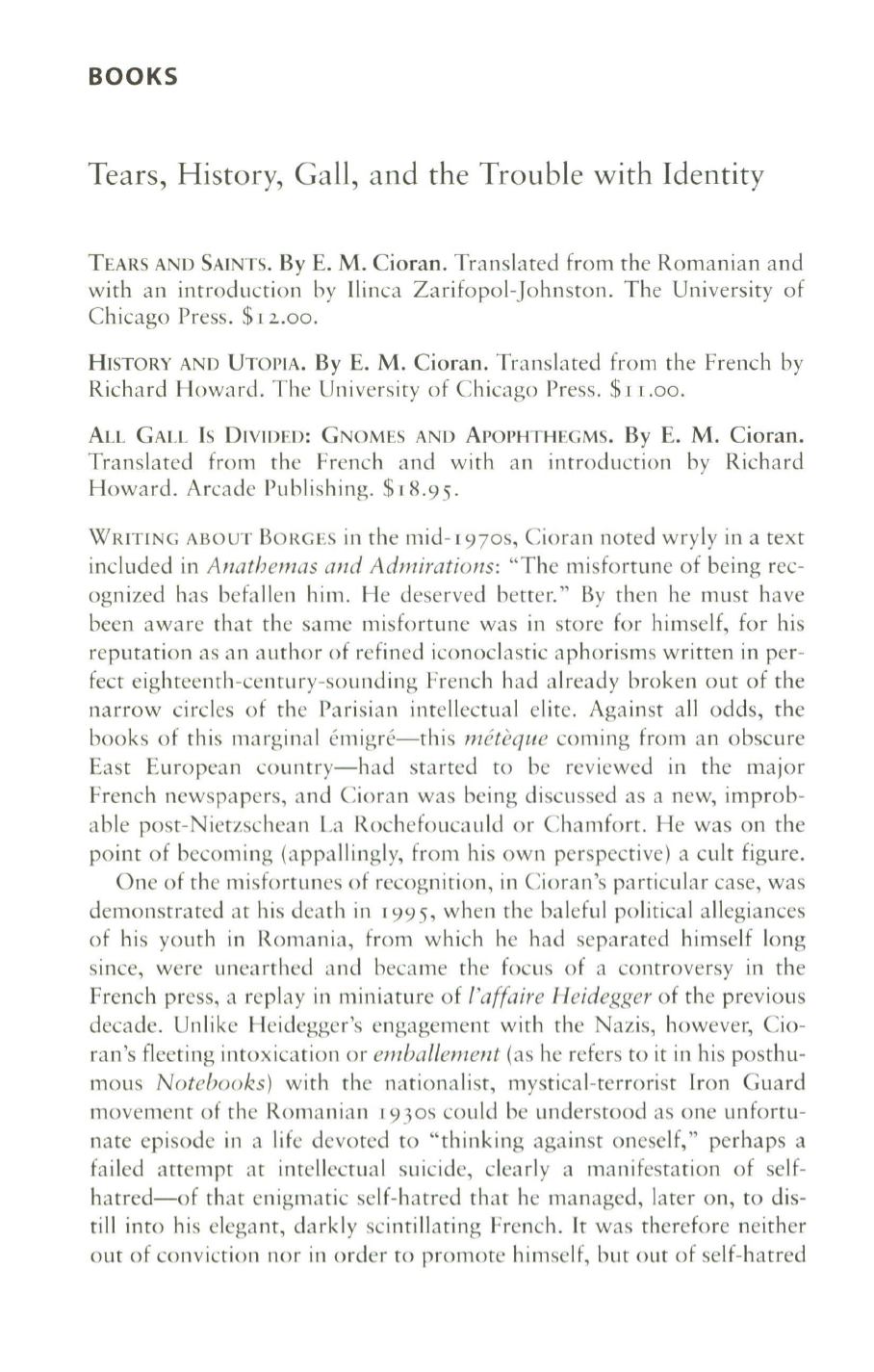
BOOKS
Tears, History, Gall, and the Trouble with Identity
TEARS AND SAINTS. By E.
M.
Cioran. Translated from the Romanian and
with an introduction by llinca Zarifopol-Johnston. The University of
Chicago Press.
$
I 2.00.
HISTORY AND UTOPIA. By E.
M.
Cioran. Translated ftom the French by
Richard Howard. The University of Chicago Press.
$
I 1.00.
ALL GALL Is DIVIDED: GNOMES AND ApOPHTHEGMS. By E.
M.
Cioran.
Translated from the French and with an introduction by Richard
Howard. Arcade Publishing.
$
I
8.95.
WRITING ABOUT BORGES in the mid-
[970S,
Cioran noted wryly in a text
included in
Anathemas and Admirations:
"The misfortune of being rec–
ognized has befallen him. He deserved better." By then he must have
been aware that the same misfortune was in store for himself, for his
reputation as an author of refined iconoclastic aphorisms written in per–
fect eighteenth-century-sounding French had already broken out of the
narrow circles of the Parisian intellectual elite. Against all odds, the
books of this marginal emigre-this
meteque
coming from an obscure
East European country-had started to be reviewed in the major
French newspapers, and Cioran was being discussed as a new, improb–
able post-Nietzschean La Rochefoucauld or Chamfort. He was on the
point of becoming (appallingly, from his own perspective) a cult figure.
One of the misfortunes of recognition, in Cioran's particular case, was
demonstrated at his death in 1995, when the baleful political allegiances
of his youth in Romania, from which he had separated himself long
since, were unearthed and became the focus of a controversy in the
French press, a replay in miniature of
l'affaire Heidegger
of the previous
decade. Unlike Heidegger's engagement with the Nazis, however, Cio–
ran's fleeting intoxication or
emballement
(as he refers to it in his posthu–
mous
Notebooks)
with the nationalist, mystical-terrorist Iron Guard
movement of the Romanian
[930S
could be understood as one unfortu–
nate episode in a life devoted to "thinking against oneself," perhaps a
failed attempt at intellectual suicide, clearly a manifestation of self–
hatred-of that enigmatic self-hatred that he managed, later on, to dis–
till into his elegant, darkly scintillating French.
It
was therefore neither
out of conviction nor in order to promote himself, but out of self-hatred


